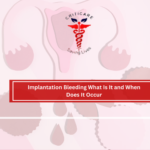Urological problems are common issues that affect many people, particularly men. Male infertility is a common urological problem that affects millions of men worldwide. It is defined as the inability of a man to impregnate a woman despite regular unprotected intercourse for one year or more. The causes of male infertility can be varied and complex, ranging from biological, and lifestyle to environmental factors.
Fortunately, there are several treatment options available for male infertility, and urologists play a crucial role in diagnosing and treating these conditions.
As experts in the male reproductive system, urologists are well-equipped to diagnose the underlying causes of male infertility and provide tailored treatment options that are effective and safe.
In this blog post, we will explore common urological problems and the different ways urologists can help diagnose and treat these conditions. Whether you are experiencing symptoms or simply want to learn more about urological health, this post will provide valuable insights into this important field of medicine.
Causes of Male Infertility
Male infertility is a complex condition that can be caused by a variety of factors, both biological and environmental. Some of the most common causes of male infertility include:
- Low sperm count: Low sperm count is a leading cause of male infertility. This can be caused by various factors such as hormonal imbalances, genetic defects, infections, and certain medications.
- Abnormal sperm morphology: Sperm with abnormal morphology, such as misshapen heads or tails, may not be able to fertilize an egg. This can be caused by genetic defects, environmental factors, and lifestyle choices such as smoking and excessive alcohol consumption.
- Problems with sperm motility: Sperm motility refers to the ability of sperm to move and swim toward the egg. Poor sperm motility can be caused by genetic defects, infections, and exposure to toxins.
- Erectile dysfunction: Erectile dysfunction is a common condition that can affect male fertility by making it difficult to achieve or maintain an erection during intercourse.
- Varicocele: Varicocele is a condition where the veins in the scrotum become enlarged and can cause damage to the sperm-producing tubes in the testicles.
Diagnosing Male Infertility
- Medical history and physical examination: A thorough medical history and physical examination can help identify any underlying health conditions or lifestyle factors that may be contributing to male infertility. The urologist will ask about any symptoms, medical history, family history, and lifestyle habits.
- Semen analysis: A semen analysis is a critical test to evaluate the quantity and quality of sperm in the semen. This test checks for the sperm count, motility, morphology, and volume of the semen.
- Hormonal evaluation: Hormonal imbalances can cause male infertility. Therefore, the urologist may recommend a blood test to check the levels of hormones like testosterone, follicle-stimulating hormone (FSH), and luteinizing hormone (LH).
- Genetic testing: Genetic testing may be recommended in cases where there is a suspected genetic cause of male infertility.
Treatment Options for Male Infertility
Medications may be prescribed to treat hormonal imbalances or infections that may be contributing to male infertility. For example, antibiotics can be used to treat infections like epididymitis or prostatitis. Hormone therapy may also be recommended to address low testosterone levels or other hormonal imbalances. Surgery may be recommended to correct structural abnormalities that are causing infertility, such as a varicocele, blockages in the vas deferens or epididymis, or an obstructed ejaculatory duct.
Certain lifestyle changes can help improve male fertility. For example, quitting smoking and reducing alcohol intake can improve sperm quality and count. Regular exercise and a healthy diet can also help improve overall reproductive health.
Assisted reproductive techniques (ART) involve various techniques that can be used to help couples achieve pregnancy. These techniques include intrauterine insemination (IUI), intracytoplasmic sperm injection (ICSI), and in vitro fertilization (IVF). In IUI, sperm is directly injected into the uterus during ovulation.
In ICSI, a single sperm is injected directly into the egg. In IVF, eggs are fertilized with sperm in a laboratory dish and the resulting embryos are implanted in the uterus.
In cases where the male partner’s sperm is not viable or the underlying cause of infertility cannot be treated, donor sperm may be used for ART procedures.
The Role of Urologists in Addressing Male Infertility
The role of urologists in addressing male infertility begins with a thorough evaluation of the patient’s medical history, physical examination, and diagnostic tests to determine the underlying cause of the condition. Based on the diagnosis, the urologist will recommend appropriate treatment options to improve fertility. The treatment plan may include medication, surgery, lifestyle changes, or assisted reproductive techniques (ART).
In addition to treating male infertility, urologists also play a vital role in educating patients about their reproductive health.
They provide information on how to maintain optimal reproductive health, such as lifestyle modifications, including exercise and a healthy diet, and avoiding exposure to environmental toxins that may impact fertility.
Overall, urologists play a crucial role in addressing male infertility. They have the knowledge, skills, and expertise to diagnose and treat urological problems, including male infertility. They work closely with other medical specialists to provide comprehensive care to patients and help couples achieve their dreams of starting a family.
Conclusion
In conclusion, male infertility is a common urological problem that affects many couples worldwide. However, with the help of urologists, couples can achieve their dreams of starting a family. Urologists play a crucial role in diagnosing and treating male infertility, providing comprehensive care to patients, and educating them on maintaining optimal reproductive health.
If you are in Lucknow and experiencing male infertility, consider seeking help from the best urology hospital in Lucknow – CritiCare Hospital.
Our team of experienced urologists is committed to providing personalized and comprehensive care to patients, including the latest diagnostic techniques and treatment options to address male infertility.
To learn more about our services or to book an appointment with one of our urologists, visit our website or call us today. Take the first step towards achieving your dream of starting a family by choosing the best urology hospital in Lucknow – CritiCare Hospital .




